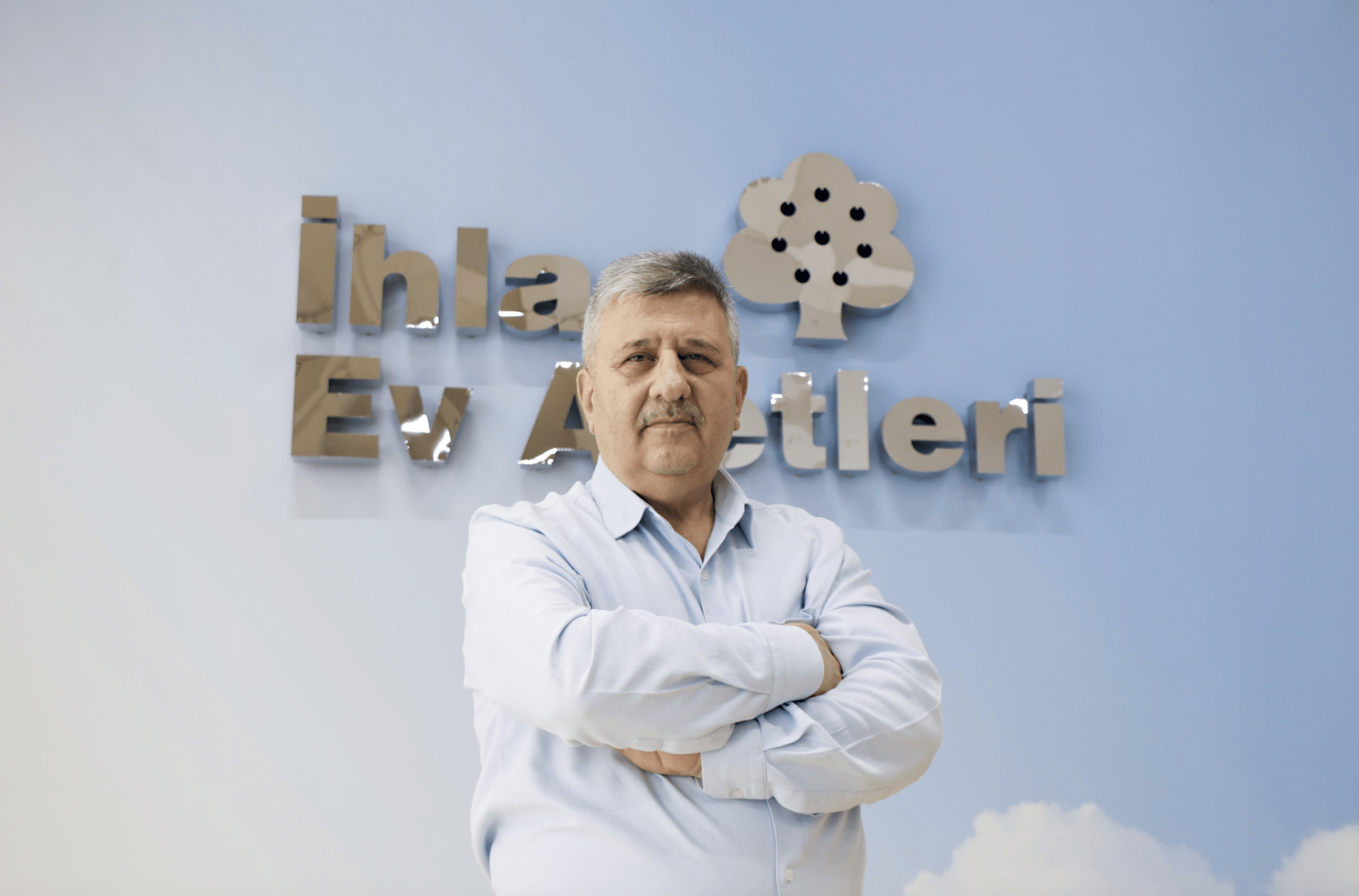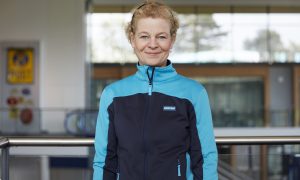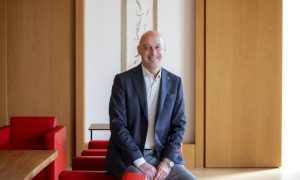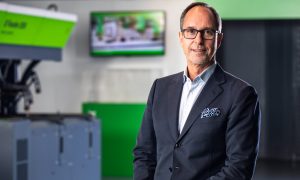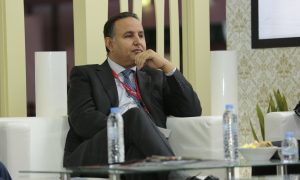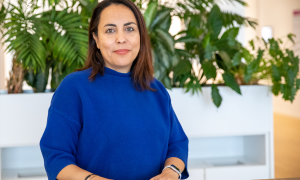With its Aura branded products, which are used by millions of households, Turkish manufacturer Ihlas Ev Aletleri (IEA) has proven itself a pioneer of household appliance innovation. General Manager Bekir Eren discusses how an imaginative research and development programme can provide post-modern solutions to post-modern problems.
When mechanical technology is mentioned, Germany and Japan come to mind, but Istanbul-based IEA is rapidly forging a reputation as a big player in the field. Part of the vast Ihlas Holdings corporation, a conglomerate comprising nearly 3,000 employees across 30 companies and involved in everything from media, to construction, to health and education, IEA’s household products have garnered wide-ranging acclaim. The company’s Aura Roboclean and Cleanmax cleaning robots, a water filter vacuum cleaner capable of cleaning chairs, sofas, and hard floors as well as carpets, scooped first prize at the Red Dot Awards, an international design competition hosted in Essen, Germany. Meanwhile, IEA’s other flagship product, the Cebilon reverse osmosis water treatment de- vice, won a national design award in 2014. The Cebilon filters mains water through five separate filters, removing all harmful chemicals, ions, and micro-organisms. It also provides a mineral supplement and regulates the pH of the water for optimal human consumption. When GM Bekir joined the company in 2020, moving over from another Ihlas group subsidiary, he knew he was arriving at something exciting. “I graduated from the Middle East Technical University as an industrial engineer,” he explains. “So, although I have quite a diverse background within the group, IEA was a company very well-suited to my interests. Our products are unique in the Turkish market and beyond, and that attracted me.”
The Aura Roboclean and Cleanmax, for example, has a revolutionary dust-processing system. When dust is collected by the machine, it’s stored internally in water, meaning that operation and disposal can be performed more cleanly than standard vacuum cleaners. Despite its multiple functions, double fan, and high suction capability, it also manages to be 8 dB quieter than comparable products. Bekir is clearly proud of it: “The Roboclean’s and Cleanmax’s ioniser means that not only does it clean your house, but it also purifies the air as it does so. No other household cleaning device does all this.”
Guided by the Ihlas marketing division, the Cleanmax is sold via unconventional channels. Rather than being made available in shops or regular retail platforms, its success has been built on direct marketing. Through more than 730 service points all over Turkey, appointments are made with householders, during which the product’s capabilities are explained and demonstrated. In this way, the Cleanmax has grown to be extremely competitive in the domestic market.
“The great thing about this is that the communication channels flow two ways,” Bekir says. “As well as marketing the current products, the service points provide us with direct feedback about customers’ demands related to product features and functions. This then informs our research and development, enabling us to constantly develop solutions to meet consumer needs.”
Along with the Cebilon water purifier, the Roboclean is also exported to more than 60 countries internationally. The company’s largest export market, perhaps naturally, lies in the Turkic republics of Azerbaijan, Kazakhstan, Kyrgyzstan, and Uzbekistan. However, significant sales are also made within the EU, US, South America, Korea, and South Africa.
Despite IEA’s growing success, Bekir identified two focus areas upon assuming his position. In the first instance, with newly developed products expected to reach the market within three to five years, he has taken a keen interest in controlling development costs in order to boost competitiveness as well as controlling the production cost of current products continuously.
He says: “Regarding our water purifiers, to use them as an example, there is a Chinese product which you could say is a little more competitive than ours in the export market. Their production costs are exceptionally low. Of course, we are looking at ways to compete with that. We believe in our products and want them to stand up against everything.”
Alongside cost efficiency measures, Bekir has also emphasised the importance of quality. As a result, IEA holds multiple national and international management and quality certificates, demonstrating the company’s compliance with universal standards, including ISO 9001 Quality Management System, ISO 27001 Information Security Management System, National Sanitation Foundation (NSF) certificates, and Water Quality Association membership. Also, IEA products have won various international design awards including Good Design, IF Design, A Design, and German Design.
As with so many manufacturers, environmental concerns have become extremely important for IEA in recent years. Sustainability is a hugely important consideration for any manufacturing company and especially for those building mechanical products which may emit gases or substances when used. The company is continuing to work towards obtaining a variety of other environmental certifications. With that in hand, Bekir hopes to increase the company’s export levels from 25% to 50% of all sales within three to five years. In particular, IEA will focus on the Asian and African markets as key regions for potential growth.
With this vision in place, IEA has been able to increase both production volume and sales in the two years since Bekir’s arrival. This is despite the coronavirus pandemic. “I think that because our key products are products which help with hygiene and help to purify environments, they were seen as products which became even more important during the pandemic,” he says. “In this way, we were fortunate as a company that coronavirus was not bad for us, economically.”
The Roboclean’s and Cleanmax’s ioniser means that not only does it clean your house, but it also purifies the air as it does so
In 2020, while the pandemic devastated most industries and markets worldwide, domestic sales of the Cleanmax rose by 28% and the Cebilon by 59%. This increase is projected to continue into 2022, with domestic production up 30% on last year. Unlike so many industries and markets worldwide, COVID does not seem to have negatively impacted IEA at all. That is not to say, however, that the pandemic has not brought challenges.
“Of course, the supply chain became very disrupted,” Bekir says. “Raw materials went up and freight costs increased exponentially. We import many components from abroad and container freight costs have exploded – this is something we must factor into our future plans.”
IEA was able to override these problems by having a solid supply infrastructure and diverse strategic supplier relationships built over several decades. As a result, despite these universal difficulties, there is great optimism about the company’s future.
“We are a unique company with unique products and brands. That gives a particular identity. And I think this is very important,” Bekir concludes. “It is this which sets us apart from our competitors.”
Read and download the full article here.

